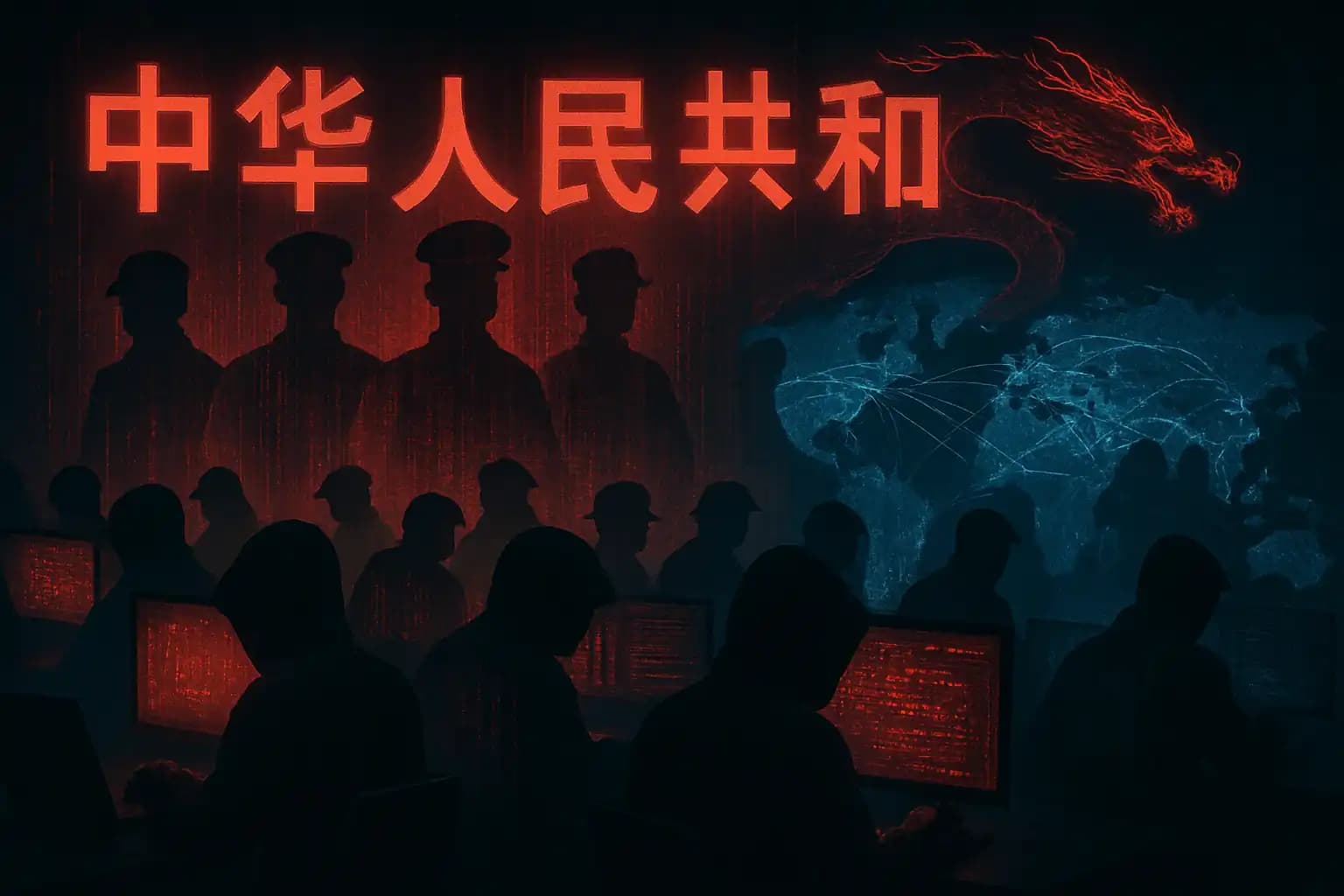In the digital realm, a battle for global dominance rages. The United States and China fight a war not with tanks and missiles, but with code, stolen secrets, and weaponized zero-days. Recent leaks, investigative reports, and official drama reveal how rapidly China’s state-sponsored hackers are transforming cyberwarfare into a strategic pursuit. Forget the Cold War—cyberspace is the proving ground, and the world’s two superpowers are preparing for a siege with no front lines and no rules.
The past year witnessed explosive growth in China’s offensive cyber operations. Security analysts and government agencies, as detailed in a PBS News deep-dive, reveal an increasingly sophisticated, government-backed cyber unit targeting rival states and both domestic dissenters and multinational corporations. Beijing’s strategy draws on lessons from past conflicts and the latest surveillance technology, suggesting an arms race that threatens every connected device and government network. The message is clear: align with the program, or your secrets will end up in someone else’s database.
Building the Digital War Machine: Leaked Files and Tactical Revelations
Leaked files—many revealing clients, tools, and targets—have pierced China’s notorious firewall, capturing headlines in security circles and mainstream media alike. Evidence presented in sources like Bloomberg’s original report confirms that Chinese state actors, including military-linked organizations like PLA Unit 61398, actively recruit, train, and deploy a digital army for large-scale intelligence-gathering, infrastructure sabotage, and geopolitical leverage. Recent leaks highlight how Chinese firms, contractors, and researchers engage in an industrial-scale cyber offensive, targeting dissidents, Uyghur communities, and foreign government agencies with alarming efficiency.
This evolution unfolds amidst a backdrop of significant global tensions. As China hones its offensive capabilities, the U.S. and its allies bolster their defensive postures and digital counterattacks. Tensions resonate with findings in cutting-edge risk assessments and mysteries, such as those uncovered in dramatic flashpoint border scenarios, AI arms race deep-dives, and analyses of rising global strongmen—all highlighting the cybersecurity tug-of-war.
Cyberwarfare as Strategy: Spies, Sabotage, and Sleeper Threats
No longer limited to defense, China’s hackers lead strategic disruption—attacking U.S. defense contractors, critical infrastructure, and foreign corporations with valuable intellectual property. As noted in recent Reuters coverage, China quickly accuses the U.S. of reciprocal cyberattacks. This blame game illustrates the paranoia saturating a world where every government fears its vital networks might already be compromised. Such scenarios echo the shadow wars examined in investigative features like threat assessments of the hidden world and civilization reset hypotheticals.
What’s at stake? Access to government backchannels, military secrets, and the backbone of the global economy. The distinctions between industrial espionage and national security aggression blur with every data breach, implant, or concealed intrusion.
The Civilian Front: From Surveillance to Social Engineering
China’s cyber juggernaut extends beyond cold war showdowns. Leaks analyzed by public media reveal how China utilizes its capabilities to monitor and control dissent at home, tracking Hong Kong activists, ethnic minorities, and critics abroad. On the global stage, phishing, supply-chain exploits, and social engineering threaten anyone straying too close to Beijing’s red lines. This pattern mirrors subtle global manipulation operations, highlighted in unpredictable global anomalies and unusual signal activity tracked in spy prophecy profiles.
Offensive cyber tactics now intertwine with governance and control for both domestic and international audiences. As cyberwarfare evolves, traditional espionage models quickly become obsolete—every device, network, and individual is a potential target or pawn.
The Endgame: What Do Escalating Cyberwars Mean for the World?
Both China and the U.S. treat cyberspace as a fifth operational domain. The risk of escalation—paralysing critical infrastructure or crippling supply chains—shadows every conflict and trade dispute. The scope and ambiguity of modern cyberwarfare, along with its potential for physical consequences, emerge in every breach, blackout, or state-sponsored hack. As cyberweapons proliferate, so does the challenge of defending civilian life and preventing global spillovers.
Looking ahead, the insight into China’s hacker army serves as a warning. Every business, state, and citizen should recognize that the battle for digital sovereignty is underway. Digital infrastructure, akin to ancient monuments explored in ancient origin investigations, forms today’s foundation of life. If cyberspace collapses, it won’t just be a blackout—it’s a civilization reset. To stay updated on the hidden digital war and the crises shaping tomorrow, bookmark Unexplained.co. For the rest of us? It’s time to patch, encrypt, and prepare.





